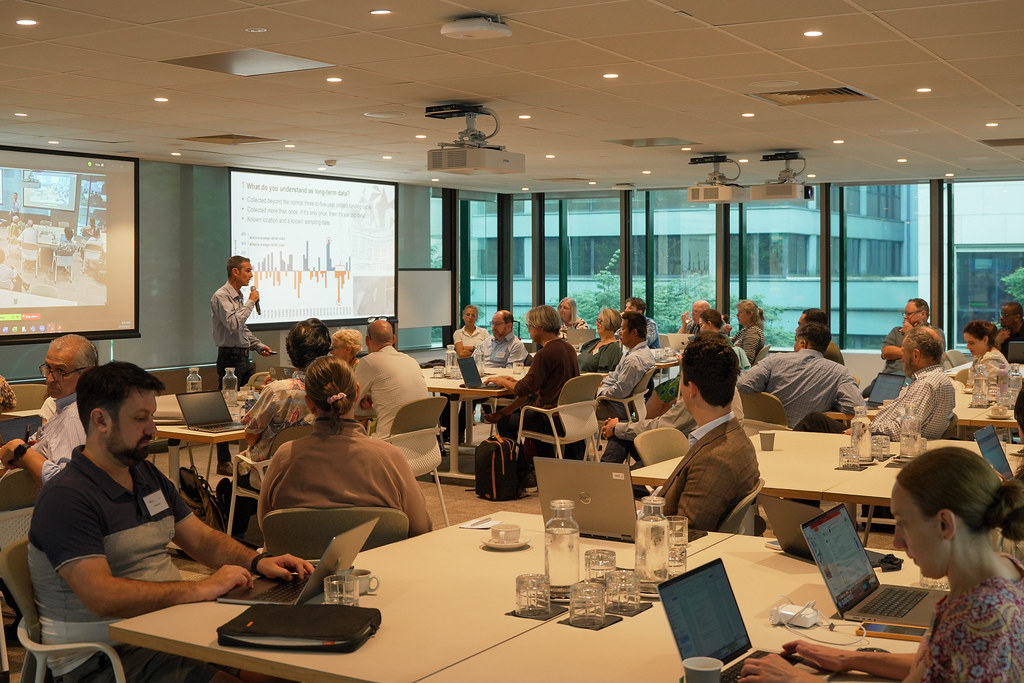As we move into the final months of 2025, it’s a pleasure to reflect on the remarkable momentum we’re experiencing at TERN with respect to monitoring activities, refreshing our governance (more on that later this year) and making an impact through engagement – thanks team! Indeed, the TERN team has just received a Research Culture award from the University of Queensland, celebrating contributions to enriching the research environment.
Worth noting is that the Department of Education, which runs the research infrastructure funding program, has announced this week that the 2026 National Research Infrastructure (NRI) Roadmap Issues Paper and Survey are now live. If you would like to contribute ideas on new research infrastructure, the survey is open until 1 December. If you would like to help with the coordinated TERN response, send me an email – we will be holding a couple of workshop sessions in November with our team and anyone who has flagged an interest.
I’m delighted to welcome Associate Professor Nicholas Friedman as the new lead for TERN’s Ecosystem Processes capability. Nick comes to us with impressive credentials, most recently serving as Curator of Ornithology at the Leibniz Institute for the Analysis of Biodiversity Change in Hamburg, Germany. His research expertise in biodiversity dynamics—spanning both evolutionary timescales and contemporary global change—will be invaluable as we continue to operate the TERN SuperSites and Australian Flux Network. Prior to his time in Germany, Nick spent 7 years in Japan leading acoustic monitoring and environmental data initiatives for the Okinawa Environmental Observation Network. Nick is based at James Cook University’s Townsville campus, and we’re excited to see how his international perspective will enrich our work in understanding Australia’s complex ecosystems.
We’re also thrilled to welcome Dr Fiona McMillan-Webster as TERN’s new Science Writer. Fiona is already making her mark—this is her first newsletter for TERN, and I’m particularly pleased that she joins us as an award-winning communicator who will help us share the stories of Australian ecosystem science with clarity and impact.
Last Friday, TERN participated in an important international workshop focused on the long-term management of digital research objects that support the Sustainable Development Goals (see image above). This event brought together critical thinkers and practitioners from across the globe to address one of the most pressing challenges in modern research infrastructure: ensuring our data remains accessible, usable, and sustainable for future generations. The workshop featured 3 key themes—examining experiences from data creators and users, exploring perspectives from repository and storage providers, and future-scanning options for the research data ecosystem. We were privileged to hear from domain experts spanning medical research, environmental science, and astronomy, alongside international leaders in data stewardship from organisations including DANS in the Netherlands, the UK’s Natural Environment Research Council, the American Geophysical Union, and CODATA. These conversations are vital as we continue to build TERN’s capacity as a trusted custodian of Australia’s ecosystem data.
Looking ahead, I’m pleased to announce that TERN is a conference sponsor for the Ecological Society of Australia, which will occur in the final week of November, in Adelaide. This partnership reflects our commitment to supporting the broader ecological research community and fostering connections between researchers, practitioners, and policy makers working to understand and protect Australia’s unique ecosystems.
The articles featured in this month’s newsletter showcase the breadth and impact of ecosystem science in Australia—from understanding plant distributions and forest carbon dynamics to exploring the critical role of atmospheric chemistry and developing innovative drought monitoring tools. Each represents the kind of rigorous, relevant research that TERN exists to enable through our infrastructure and data services.
Thank you for your continued engagement with TERN’s mission, and I look forward to updating you on further developments in the months ahead.
Dr Beryl Morris, TERN Australia Director


